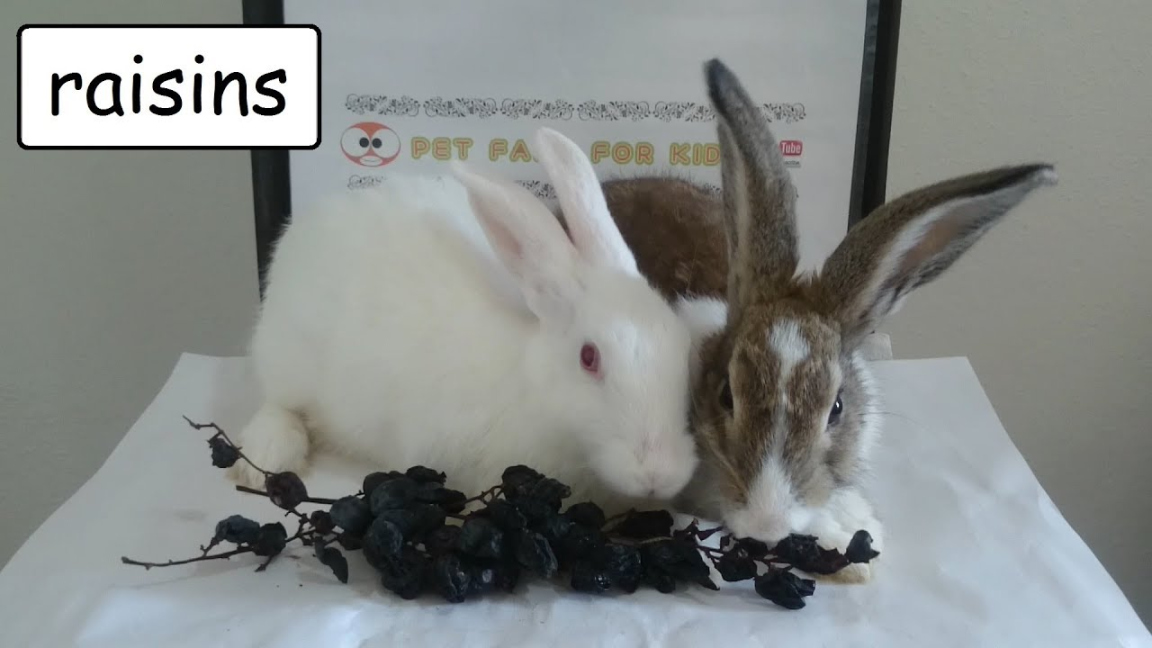Can Rabbits Eat Sultanas?
When it comes to feeding our beloved pet rabbits, it’s essential to provide them with a balanced and nutritious diet. While rabbits primarily consume hay, fresh vegetables, and a small number of pellets, it’s natural for rabbit owners to wonder if they can occasionally treat their furry friends with other foods like sultanas. Sultanas are dried white grapes commonly used in baking and cooking. Let’s delve into whether rabbits can safely consume sultanas and what precautions should be taken.

The Benefits of Sultanas for Rabbits
While sultanas may be a delicious and healthy treat for humans, they are not as suitable for rabbits. Rabbits have a delicate digestive system that is adapted to a high-fiber, low-sugar diet. Sultanas, on the other hand, are high in sugar and can cause digestive disturbances if consumed in large quantities. Additionally, sultanas lack the essential nutrients that rabbits require for optimal health.
The Dangers of Sultanas for Rabbits
Feeding sultanas to rabbits can pose several risks to their health:
- Gastrointestinal Discomfort: Rabbits’ digestive systems are not built to handle sugary or high-carbohydrate foods like sultanas. Consuming sultanas can lead to gastrointestinal discomfort, including diarrhea, bloating, and gas. These digestive disturbances can result in severe health issues for rabbits.
- Obesity and Dental Problems: Sultanas are high in sugar and can contribute to obesity in rabbits. Overweight rabbits are more prone to various health problems, including dental issues. The sticky nature of sultanas can also cause dental complications, as they can easily get stuck in the rabbits’ teeth, leading to decay and discomfort.
- High Sugar Content: Sultanas have a high sugar content, which can cause a spike in rabbits’ blood sugar levels. This sudden increase can potentially lead to metabolic disorders in rabbits, such as diabetes.
- Potential Toxicity: While sultanas are not toxic to rabbits, some dried fruits, including raisins, can be toxic in large quantities. It’s always better to err on the side of caution and avoid feeding rabbits any dried fruits.
What Should Rabbits Eat Instead?
Instead of sultanas, it’s best to stick to a diet that is suitable for rabbits. The following foods are safe and beneficial for rabbits:
- Hay: Rabbits should have unlimited access to fresh hay, such as timothy or meadow hay. Hay is an essential part of their diet as it provides necessary fiber and helps maintain healthy digestion.
- Fresh Vegetables: Leafy greens like kale, romaine lettuce, and spinach can be offered daily. Other vegetables such as carrots, bell peppers, and broccoli can be given in moderation.
- Pellets: High-quality rabbit pellets should make up a small portion of a rabbit’s diet. Choose pellets that are specifically formulated for rabbits and avoid those with added sugars or artificial ingredients.
- Water: Fresh, clean water should always be available for rabbits. Ensure that the water is changed regularly to prevent contamination.
Remember: Rabbits have sensitive digestive systems, and it’s important to introduce any new food gradually to avoid causing digestive upset. Always consult with a veterinarian before making any significant changes to your rabbit’s diet.
Frequently Asked Questions (FAQs)
1. Can rabbits eat grapes?
Yes, rabbits can eat grapes, including seedless varieties. However, grapes should be offered in moderation as a treat, not as a staple food. Remember to remove any seeds and wash the grapes thoroughly before feeding them to your rabbit.
2. Are raisins safe for rabbits?
No, raisins are not safe for rabbits. Raisins are dried grapes, and like sultanas, they are high in sugar and can cause digestive issues, obesity, and other health problems in rabbits. It’s best to avoid feeding rabbits raisins altogether.
3. Can rabbits eat other dried fruits?
Rabbits should not be fed dried fruits, including dried apples, apricots, or cranberries. These fruits have a high sugar content and lack the necessary nutrients required for a rabbit’s diet. Stick to fresh vegetables and hay for optimal nutrition.
4. Are there any fruits that rabbits can eat?
While rabbits are herbivores and their diet primarily consists of hay and vegetables, they can enjoy small amounts of certain fruits as occasional treats. Safe fruits for rabbits include apples (without seeds), bananas, strawberries, and blueberries. Remember to introduce fruits slowly and in moderation.
In conclusion, sultanas are not suitable for rabbits. While they may be delicious for humans, rabbits have specific dietary needs that should be met through an appropriate rabbit diet consisting of hay, fresh vegetables, and a small amount of pellets. It’s important to prioritize your rabbit’s health and consult with a veterinarian for guidance on the best diet for your furry friend.
Related Articles…
Copyright Notice:
This website utilizes images found online, all copyrights are retained by their original owners. If you would like an image removed, kindly contact us.